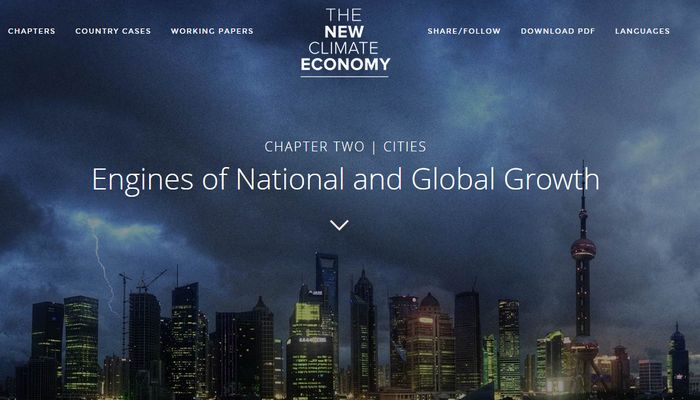
‘Better Growth, Better Climate: The New Climate Economy Report’ has just been released by the Global Commission on the Economy and Climate, which was set up to examine whether it is possible to achieve lasting economic growth while also tackling the risks of climate change.
The report’s conclusion is that “countries at all levels of income now have the opportunity to build lasting economic growth at the same time as reducing the immense risks of climate change”. This is made possible, it has said, by structural and technological changes unfolding in the global economy and opportunities for greater economic efficiency. The capital for the necessary investments is available, and the potential for innovation is vast.
“The next 15 years will be critical, as the global economy undergoes a deep structural transformation. It will not be ‘business as usual’. The global economy will grow by more than half, a billion more people will come to live in cities, and rapid technological advance will continue to change businesses and lives. Around US$90 trillion is likely to be invested in infrastructure in the world’s urban, land use and energy systems. How these changes are managed will shape future patterns of growth, productivity and living standards.”
According to the Global Commission on the Economy and Climate, the next 15 years of investment will also determine the future of the world’s climate system. “Without stronger action in the next 10-15 years, which leads global emissions to peak and then fall, it is near certain that global average warming will exceed 2°C, the level the international community has agreed not to cross”.
Future economic growth does not have to copy the high-carbon, unevenly distributed model of the past, is the message from the report. “There is now huge potential to invest in greater efficiency, structural transformation and technological change in three key systems of the economy.”
The Commission’s work has been conducted by a partnership of eight research institutes: World Resources Institute (WRI), Climate Policy Initiative (CPI), Ethiopian Development Research Institute (EDRI), Global Green Growth Institute (GGGI), Indian Council for Research on International Economic Relations (ICRIER), LSE Cities, Stockholm Environment Institute (SEI) and Tsinghua University.
